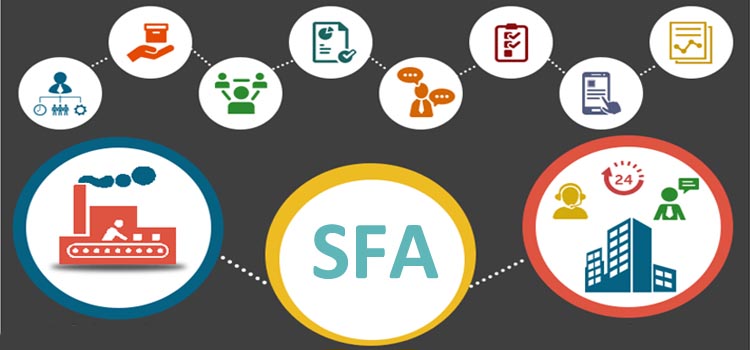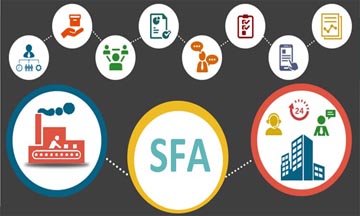
CHARACTERISTICS OF SFA SYSTEMS IN UNORGANIZED RETAIL SALES CONTEXT
In my last blog I talked about how the Sales operations in an unorganized retail chain driven selling environment is fundamentally different to organized retail chain based operations or B2B sales operations. This has several implications on choice of automation strategy for Sales operations for brands operating in this space. In this blog, I have tried to highlight a few.
SFA – Sales Force Automation- is general term for class of software systems used for automating Sales Operations for any organization / brand with a field workforce. A number of mature offerings are available in market. Many of them have evolved from pure play CRM (Customer Relationship Management) and other specialized systems such as marketing campaign related tools etc.
Part of the reason why differences in managing Offline unorganized retail is less explored is because , in my opinion, in OECD countries bulk of the offline retailing is done via large retail chains such as Walmart, Tesco and other retail giants where agreement to stock/sell via retail chains has the same characteristics as a large institutional sale scenario. Since most of the major SFA vendors have evolved from serving these markets, the concept of SFA has largely been understood and aligned to automating sales functions for such scenarios. Although its important to mention, many of these products have added customizations for covering part of requirement context of unorganized retail sales.
To understand, how it should differ for unorganized retail, we should analyze the differences in characteristics of Sales Operations of unorganized retail vs organized retail or B2B selling. I have explored this in detail in my last blog, kindly refer to blog “B2B_vs_UnorganizedRetailChain_SalesOperations” for detailed analysis.
The summary is produced as below:
I have summarized the highlights of differences analysed above in following table:
- Governance, compliance and monitoring is much more important in unorganized retail as volume, geographic spread and micro markets tend to be large.
- Market Intelligence is a crucial function intertwined with sales.
- Incentives, promotions such as Marketing schemes for retailers offering deals from time to time, Loyalty Plans incentivizing consumers for repeat purchase is much more important.
- Reducing process time even by a small fraction can have a substantial cumulative impact due to large number of field processes which are short.
- Structured mechanism to address field feedback, cases is needed because listening carefully to market is important.
- Regular surveying customers, rewarding customers, greetings etc are important to retain customers and capture mind space, create brand recall at time of purchase.
- Operations management offers substantial opportunities for cost savings by addressing relatively small optimizations such as optimum route, pre-defined beat plans etc.
Based on above, I feel following pyramid best captures the solution context for unorganized retail:
Above pyramid describes the cascading levels of capabilities SFA solution must possess for successful use in unorganized retail based selling context. These are summarized as follows:
Compliance and Governance
At the most basic level, your SFA solution must enable complete governance, compliance and monitoring capabilities for managing your field operations.
Process Automation with Mobility
Often SFA is taken as complete if these are the only capability set. This is an incorrect notion as this blog attempts to clarify.
Cost Efficiency
At the core of it, the basic premise of such a system is to drive cost savings. There are many areas where savings from cost efficiencies accrue from, which I will detail in my next blogs.
Market Intelligence
This is where features that are relevant to Unorganized retail based selling fundamentally differ from ‘normal- traditional’ SFA systems. Gathering intelligence is much more relevant in this requirement context than B2B context where focus is on deals and campaigns.
Conclusion
There is a risk that brands selling via unorganized retail may miss out Intelligence aspect of capabilities required in their solution approach altogether. This is possible, even likely, because traditional SFA industry has evolved from B2B / institutional sales context. While many such systems will offer the bottom three layers as defined in the pyramid above to varying degree, brands must analyze the importance of Intelligence capabilities in their context before choosing a solution strategy.
Hope you enjoyed reading this analysis, I certainly enjoyed analyzing (except the tedious part of putting it together :-)).
In my next set of blogs, I will be breaking down each of the above layers in capability terms which will highlight the differences required in strategy even more clearly.
See you soon with more…
- Anupam Ahluwalia.






